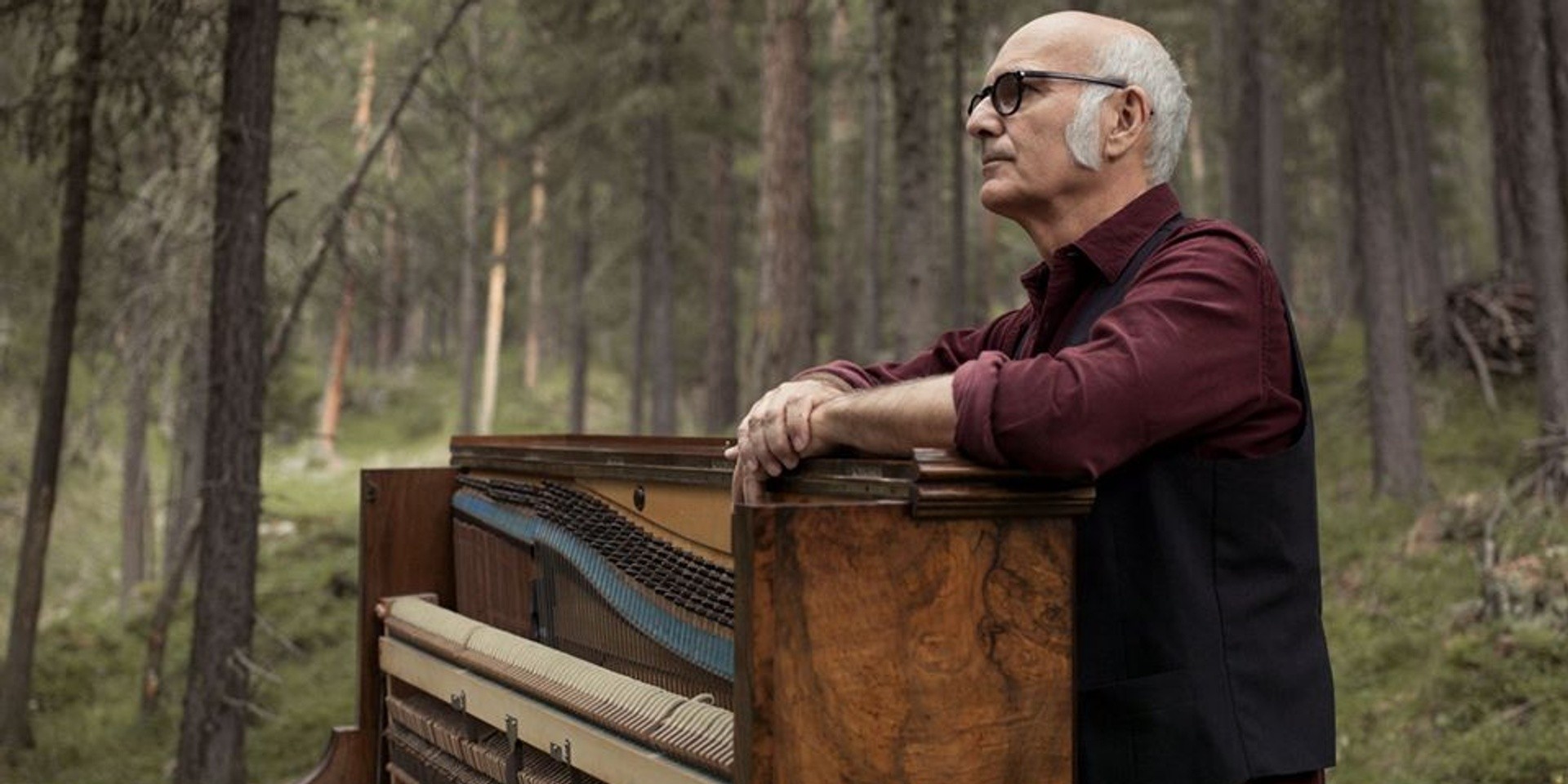Ludovico Einuadi doesn't stick to boundaries. Despite his classical roots, his musical inventory is a contemporary amalgamation of several genres, ranging from neo-classical to rock. He strikes an effortless balance between the modern and traditional to create a minimalist structure of harmonic progressions. Now the most streamed classical artist in the world, Einaudi is currently on his 2020 tour to perform in sold-out concert halls.
Ahead of his Singapore debut on 28 January 2020, we chat with him about his thoughts behind Seven Days Walking.
How do you feel about playing in Singapore for the first time?
Very happy to to be here for the first time. I have so much to learn about the people and the city. It’s always a good feeling to perform in a new place, a unique country.
We can't wait to have you. Congrats on the lovely Seven Days Walking album. On an emotional level, what’s the most significant aspect of the trip that made an impression on you?
Let’s see…
Was it the Alps?
Yes, definitely. I remember I was walking through the Arctic to a place I go regularly. I’ve been composing music there. I went there 20 years ago and I’ve made several return visits since then, especially in the summer. I really enjoy the nature. I think it’s the perfect environment to engage in the intellectual activity of making music.
How long were you there for?
I was there for a month. When I had some time off, 2 weeks or so, I decided to take these two weeks to discover new things and do new projects. I had lots of recordings that I did previously, so I tried to improvise and find a connection between them to make something new out of everything.
What does the process of composing music look like for you?
Usually, it takes at least 30 hours to make music. You have to listen intently and discern whether there was something good or not. It needs time and a lot of concentration. You don’t get to make a definite yes or no decision after listening to a recording just once. It takes a while to get immersed in the music.
Did you have a routine that helped you with focusing on making your album?
Yes, I call it my itinerary of music. Every day, while I was listening to music, I went on long walks and did the same itinerary. My routine was like a circle. I remember there was a lot of snow coming down from the sky at that time, so I couldn’t see very well. It was very foggy and the landscape was blurred. I wasn’t looking for something that I didn’t need. My mind was more concentrated.
Every day, while walking, I kept searching and trying to find the music in my mind that I wanted to create. Surprisingly, even though you’re in the middle of a routine and you’re just going through the motions, you still manage to discover new things. Making music is like walking - you walk the same route every day, but each day you discover something else, something new.
When you get distracted on your route, your mind comes up with something new. When you meet someone or you see some a different colour, you will make a mental association and then your mind goes off on another tangent. So after walking so much, I start to realise I have different variations of my musical pieces.
So what do you do with so many different ideas?
Instead of picking and using just one, I quite like the idea of connecting all these variations somehow. It’s like a picture - there are different colours and different exposures, and in the end, you try to tie them all together. I enjoy trying to merge all these variations into one project - to put the same thing in different ways. Every day, every routine, has a different colour and sometimes you might get lost. It’s like a building with say, 7 doors. It’s still the same building, but all you have to do is enter from a different door, and suddenly it feels like you’re in a different room.
You have 14 albums to your name. How does it feel to have that much music?
Each album has a story behind it. It takes a lot of work but I don’t like to look back too much. I’m looking forward to create other kinds of music. I want to just enjoy the process and share it with the audience.
That’s fantastic. One last question - what advice do you have for young and aspiring pianists all over the world?
Well, that depends, because there are different kinds of pianists with different existing repertoire and different things they’d like to do. But a pianist must be connected to the music that they compose.
In general, the piano needs a lot of special care. Most of the time, people think that they can train their hands to go faster and be stronger while playing. But they often overlook the calluses that they find on their fingers, as well as the specific areas in which they find them. Observing your callouses informs you of how you play - it allows you to find your unique way of pressing the piano keys and making your special, defined sound. And this is something to learn. Work to find your voice.
Ludivico Einaudi will be performing at the Esplanade Concert Hall on 28 January 2020. Tickets are now sold out, but you can check out other concerts from the Mosaic series here.
Listen to Seven Days Walking below.
Like what you read? Show our writer some love!
-

